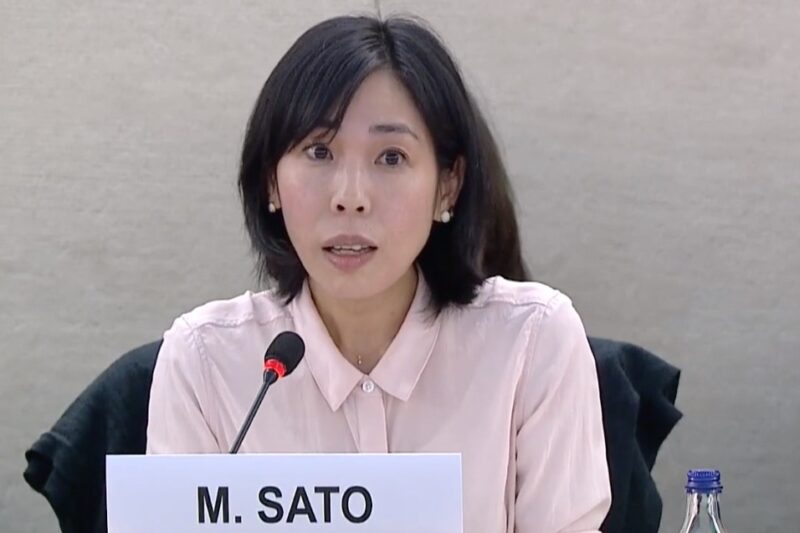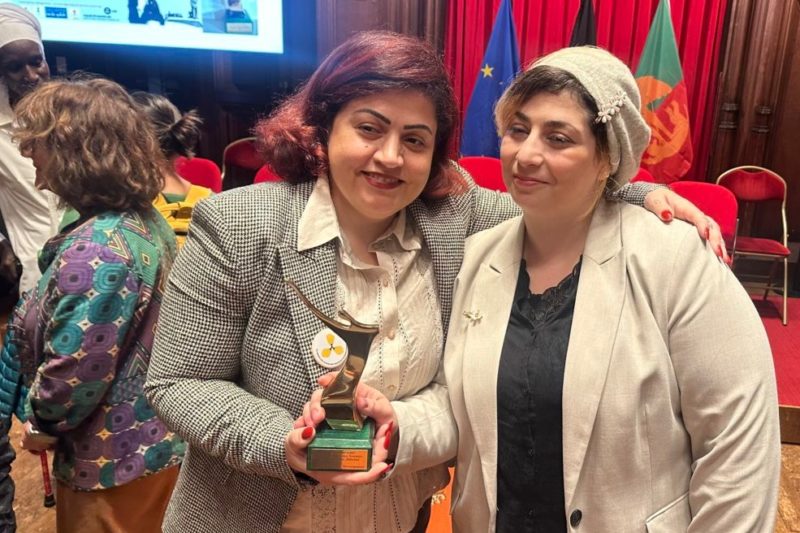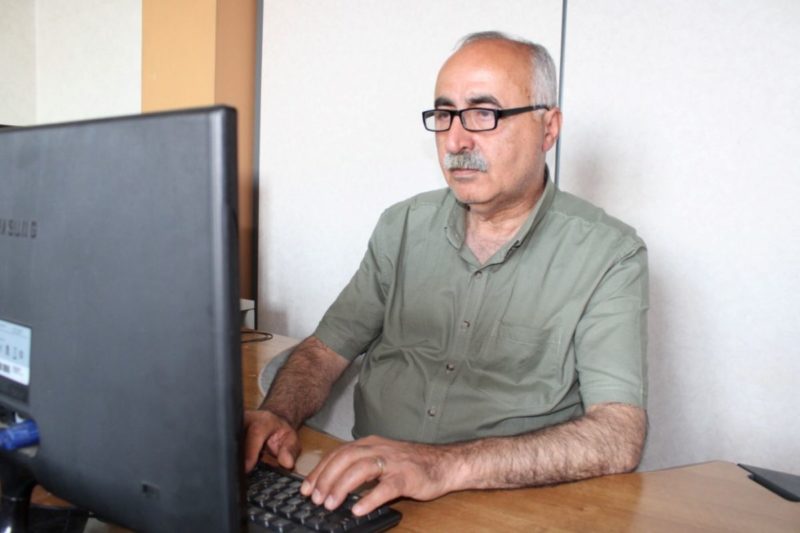The story of young Roma mother : love, bread and discrimination
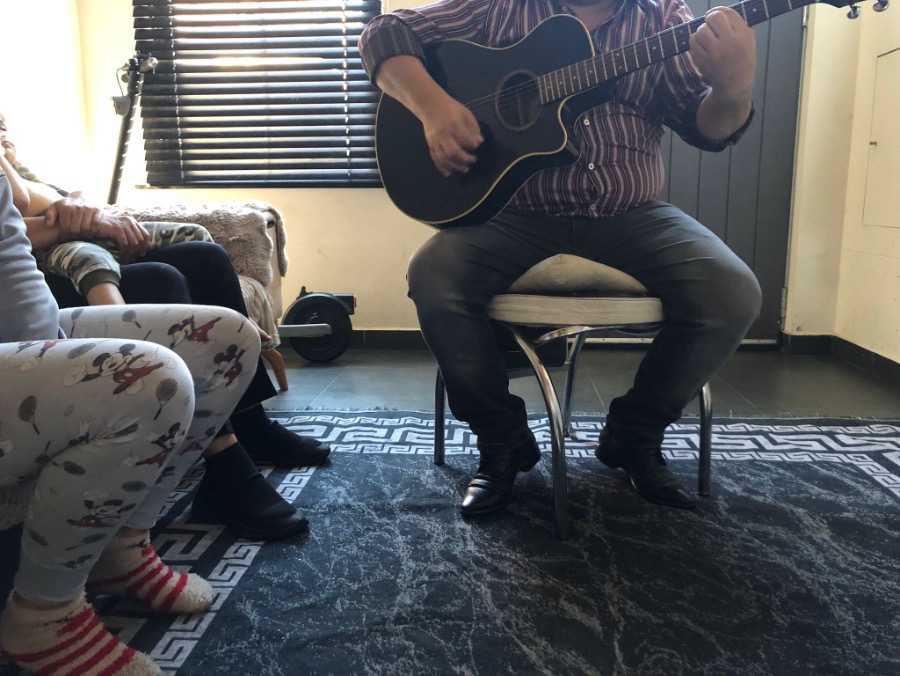
Have you ever wondered about the stories and lives of the Roma people? This is the story of Sara Mejaji*, a young mother, is just one of many similar tales.
Have you ever wondered about the stories and lives of the Roma people? Why some young girls as young as 15 or 16 become mothers, why they are constantly on the move, and whether they can integrate into modern society? The story of Sara Mejaji*, a young mother, is just one of many similar tales. All they ask for is love and bread.
I am in Ghent, in the home of a Roma family that migrated from Lunik IX, a ghetto in Slovakia. Two mothers, a father, and two children welcome me into their living room with guitar playing and singing. A young woman who left school and became a mother as a child herself is ready to share her story. She wants to show that Roma people, too, are human and are capable of adapting to modern life if not subjected to discrimination.
Mejaji (20) has two children, a boy and a girl. Poverty, lack of education, and discrimination led her to become a mother at a young age. Her childhood was marked by the struggles of living with an alcoholic father and a mother who later ended up in prison. She sought love and affection elsewhere. At the age of 12, she met a 13-year-old boy in Kortrijk in Belgium. Their friendship quickly turned into a relationship. Despite her family’s opposition, they could not control the teenage couple.
“My family didn’t want us to be together, but they couldn’t control us. Both of us dropped out of school. Eventually, my family had no choice but to approve of the relationship. As two married children (in a traditional Roma wedding), we followed my parents from country to country, searching for a better life.”
“No one showed me love. No one told me I needed education.”
At 16, Sara gave birth to her first child in Germany. To secure identification for her son, she used her mother’s name, which legally made her child her sibling. As the years passed, poverty and discrimination continued to haunt her family. They moved from one country to another in search of a better life. Their last stop was Belgium, where they had lived before. By the age of 18, Sara had her second child in Belgium; that child was also legally registered as her sibling.
After emphasizing her love for her children, Sara told me, “No one showed me love. No one around me told me that I needed an education or about the heavy responsibility of early motherhood. If my mother had explained that to me, maybe I wouldn’t be crushed under the weight of two children at such a young age.”
Sara noted that she faced fascist violence and discrimination in Slovakia and Germany but emphasized that she had not encountered any discrimination in Belgium. She added that she loves this country and that converting to evangelical Christianity and experiencing no discrimination had changed her life and perspectives. She has dreams for her children.
“I talk to my children about what life is and what love is.”
“Like me, my six sisters also married young and became mothers. But I don’t want my children to share the same fate as me or my siblings. I want my children to get an education. I don’t want them to become parents at a young age like I did. I want them to go to university, pursue careers, marry someone they love, and build a family. Even though they are still children, I talk to them about what life is, what love is, and what family means.”
Sara is talented. She writes scripts and acts in sketches that she shares on YouTube. Although she dreams of pursuing acting and screenwriting professionally, she feels this dream is impossible due to the heavy responsibilities of raising two children. “Let me say again: I love my children, but I feel imprisoned. I wish I could go back in time…,” she says and falls silent.
Earlier mariage not a “Roma phenomenon”
Many people in our society claim that the early age at which Roma people have children stems from their culture. I posed this question to Jonathan Lee, an activist and writer who works at the European Roma Rights Centre. Here is Lee’s response:
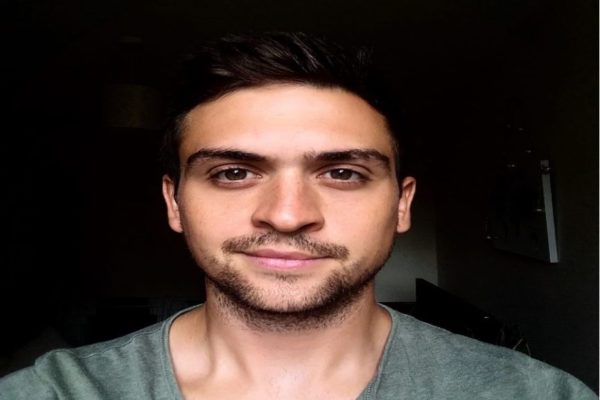
“Earlier marriage is not a ‘Roma phenomenon’, it is something that happens when people are excluded from society and are forced to adopt survival practices to ensure their children have a future. To stop early marriages, states should ensure that Romani communities are treated like everyone else – not segregated, not denied access to basic services, not living day-to-day for survival. Only then will practices like this disappear.”
“They have much better access to education here in Belgium.”
“Many Roma come from areas where there is little or no access to schooling for their children because of the segregation they experience . In countries like Slovakia and the Czech Republic and Hungary there is a high chance that their children will be segregated at school from other children. Compared to educational prospects in their home countries, they have much better access to education here in Belgium.”
Cooperation is needed
To prevent young members of the Roma community from falling into the traps of drugs, crime, and early marriages, governments, non-governmental organizations, and international institutions must cooperate. First and foremost, these young people must be provided with equal opportunities and empowered through education.
Creating a positive environment in their neighbourhoods by supporting cultural and artistic projects can also be highly effective. For instance, establishing workshops and programmes or young people interested in music can help them pursue their dreams while steering clear of high-risk environments.
Breaking the cycle of discrimination and exclusion requires not only systemic change but also compassion and understanding from society at large. The future of countless Saras depends on it.
*Name have been changed at the request of the family.


